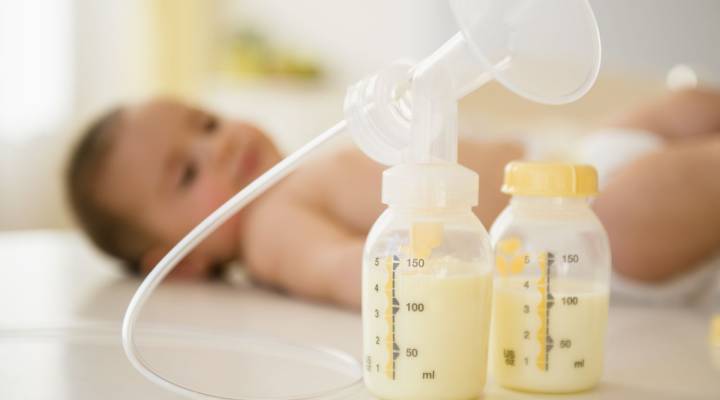No Breast milk after delivery: What to do, causes & treatments

Many mothers picture the first time they will hold their infant in their arms and begin meeting their most fundamental needs. If their milk production doesn’t start coming in soon after delivery, this expectation may cause stress and anxiety for some breastfeeding mothers.
The struggle to produce breast milk and not being able to feed your child often comes with guilt. You might even be tempted to give up attempting to breastfeed if your breast milk volume doesn’t seem to be improving three to five days after birth since you’re concerned about your baby’s nutrition.
However, before feeling like a failure, try a few more things that can further help you increase your breast milk volume.
What causes breastfeeding to be infrequent or nonexistent after delivery?
If you discover that your breastfeeding hasn’t come in soon after giving birth, you could feel quite isolated and guilty. However, be kind to yourself because you did nothing wrong. You are most definitely not the only one, and there is a high likelihood that additional milk may arrive in the upcoming week or two.
There are numerous justifications for a delay. It could take a bit longer for your mother milk supply to start producing or to grow if:
- Particularly if your baby had to be taken away from you soon after birth, it was a preterm birth.
- You suffer from a medical ailment like polycystic ovary syndrome or diabetes (PCOS).
- You are overweight.
- You had or are currently experiencing an infection or disease with a fever.
- You gave birth through c-section.
- You spent a lot of time in bed while you were pregnant.
- You suffer from a thyroid disorder.
- You experienced a postpartum hemorrhage or a traumatic birth.
- After giving delivery, you were unable to nurse for the first few hours.
What you can do
As you pump or manually express milk, massage the region around your breasts. In addition to increasing the amount that milk you produce, stimulation of the nipple can aid in the development of crucial milk receptor sites. Spending time interacting with and caressing your breasts is crucial.
- Employ a pump fit for a hospital.
- Even if it only comes out in small amounts, express milk frequently!
- Before expressing milk, use a heating pad or take a hot shower.
- Stream soothing music
- Get plenty of water to drink and rest as much as you can.
When to consult a doctor?
If your infant experiences any of the following:
- They seem parched (soft spot or eyes sunken in, skin losing elasticity).
- There are fewer soiled and wet diapers on them. After the fifth day of life, your baby should be having 6 to 8 wet diapers each day at the very least.
- They sob throughout and after meals (e.g., no signs of a happy milk-drunk baby).
- By day fourteen of life, they have not regained their birth weight. Your infant should be gaining weight steadily after experiencing a little weight loss immediately after birth.
- They become unresponsive or drowsy.
- Contact your paediatrician as soon as you can if you see any indications that your baby isn’t getting enough milk. They can look for additional issues and collaborate with you to keep your child healthy.
To sum up
Keep in mind that there are numerous causes for your milk to perhaps be a bit delayed. To increase the amount of milk you make and ensure good, long-term breast milk production potential, consult a fertility specialist or your medical professionals. Your hopes for breastfeeding don’t have to be dashed because of a rocky beginning.
Don’t blame yourself if your milk doesn’t come in at all because of a medical issue. You’re still doing a fantastic job, and your baby will be fine. Best is fed.







